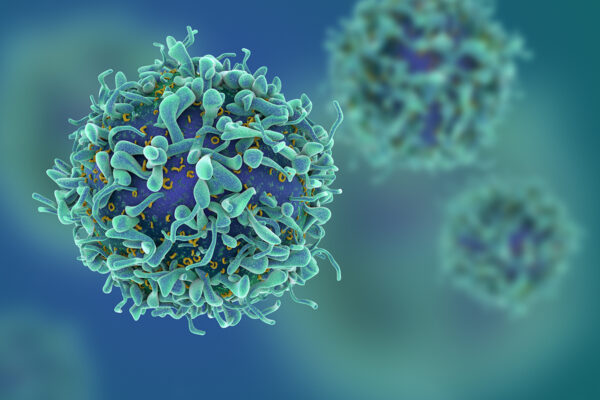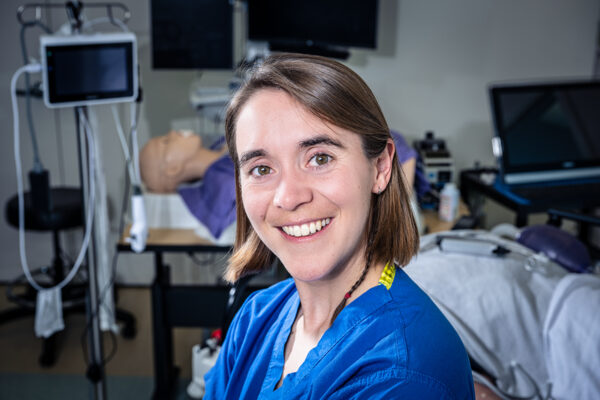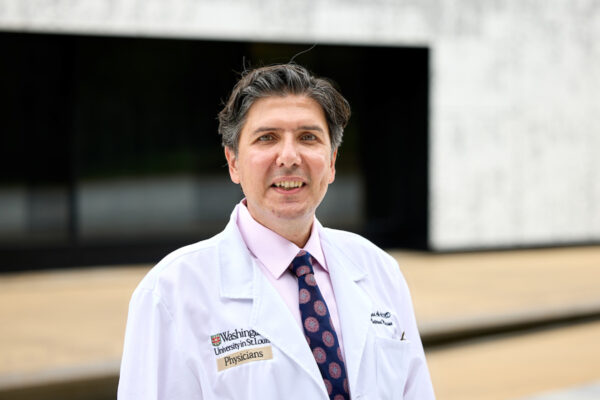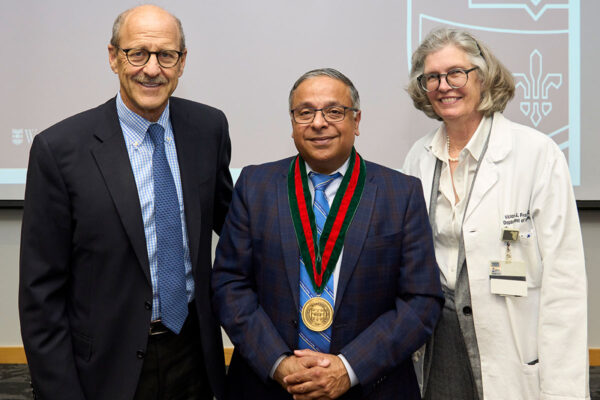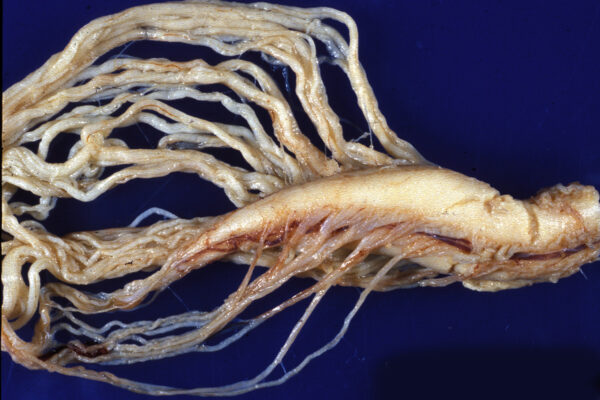HIV triggers body’s own inflammatory pathways to kill T cells
School of Medicine researchers have identified how the body’s own immune response to HIV is responsible for the T cell death that characterizes this viral infection.
Class Acts: Caellagh Catley
Caellagh Catley worked with the Department of Anesthesiology at Washington University School of Medicine to reduce carbon emissions produced by operating rooms. The project has helped Barnes-Jewish Hospital save on resources in anesthetic gas use and has reduced its carbon emissions from such gas use by more than 60%.
Al-Aly on Time100 Health list of people who have most influenced global health
Ziyad Al-Aly, MD, a clinical epidemiologist at Washington University School of Medicine in St. Louis, has been named to the inaugural Time100 Health, a new, annual list of 100 individuals who have most influenced global health.
Karam named head of radiation oncology department
Sana D. Karam, MD, PhD, a renowned radiation oncologist widely known for cutting-edge cancer research that combines radiation therapy and immunotherapy to treat head and neck, and pancreatic tumors, has been named the James S. McDonnell Professor of Radiation Oncology and head of the Department of Radiation Oncology at the School of Medicine.
Diwan named inaugural Shaeffer professor
Abhinav Diwan, MD, a highly regarded cardiologist with expertise in the molecular underpinnings of cardiovascular disease, has been named the inaugural Charlie W. Shaeffer, MD, Professor of Cardiology at Washington University School of Medicine in St. Louis.
Nine School of Medicine researchers receive Longer Life grants
Nine researchers at the School of Medicine have received funding from the Longer Life Foundation — a cooperative effort between the School of Medicine and the Reinsurance Group of America. The foundation supports research aimed at improving human health, wellness and longevity.
Eduardo Slatopolsky, professor emeritus of medicine, 89
Eduardo Slatopolsky, MD, a pioneering physician-scientist and a professor emeritus of nephrology at Washington University School of Medicine in St. Louis, died peacefully April 24 at Barnes-Jewish Hospital. He was 89.
Faculty named to American Academy of Arts & Sciences
Four Washington University in St. Louis faculty are among 250 newly elected members of the American Academy of Arts & Sciences, one of the nation’s most prestigious honorary societies. They are John Atkinson, MD, Pauline Kim, Adia Harvey Wingfield and Jeffrey Zacks.
Smart nanoparticles may be able to deliver drugs to heart after heart attack
Jianjun Guan, a materials scientist in the McKelvey School of Engineering at Washington University in St. Louis, received a four-year more than $2 million grant from the National Institutes of Health (NIH) to design a system of nanoparticles that deliver drugs after a heart attack much more effectively than current methods allow.
Atlas with annotated neuropathology images launched
Robert Schmidt, MD, PhD, a professor of pathology and immunology at Washington University School of Medicine in St. Louis, has curated a collection of over 33,000 individually annotated neuropathology images that are now available as a resource to the Washington University and international neuroscience community via a newly launched website.
View More Stories
